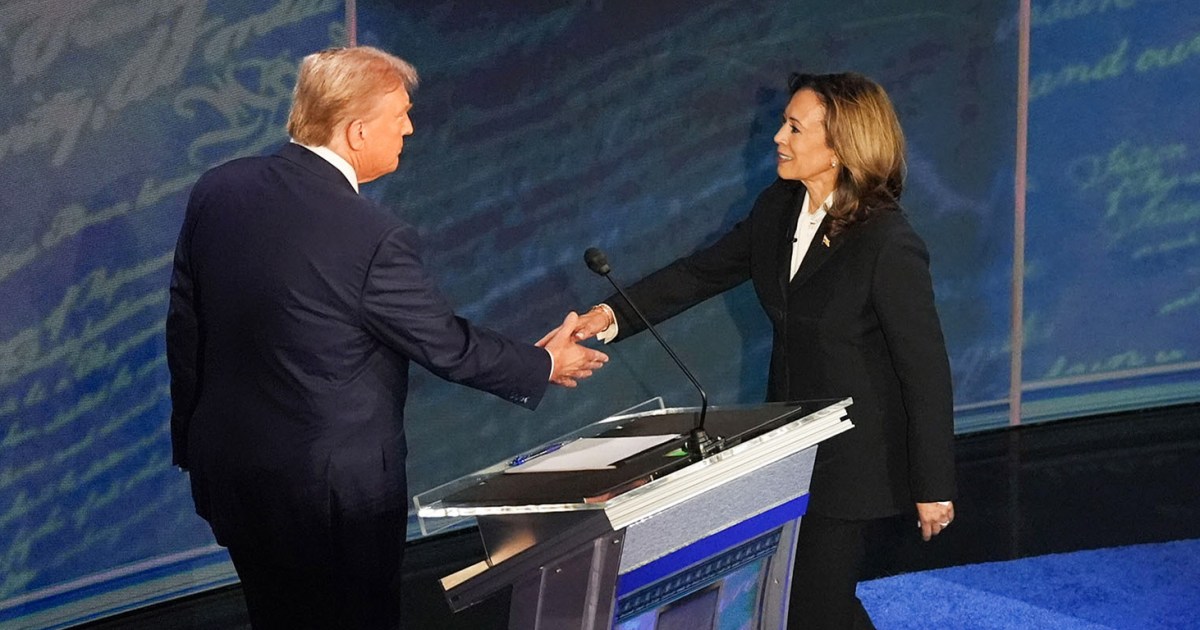Bussiness
On economic and business interests, isn’t the 2024 choice obvious?

It was just a couple of months ago when Donald Trump launched a bizarre offensive against Brian Kemp, Georgia’s incumbent Republican governor, for no particular reason. The former president slammed Kemp as a “bad guy,” “disloyal” and “Little Brian.”
At an event in the Peachtree State, Trump also targeted the governor’s wife and goaded his followers into booing their home state’s GOP governor. Perhaps most importantly, the former president singled out Kemp for failing to commit election fraud to benefit him in 2020.
Two months later, Kemp explained why he’s supporting his party’s presidential nominee anyway. The Atlanta Journal-Constitution reported:
‘Look, you may not like Donald Trump personally, but you’ll like his policies a lot better than Kamala Harris’,’ Kemp said at a recent Republican gathering. ‘It’s a business decision. You’re making a business decision.’
This is a common refrain. The New Yorker’s Susan Glasser has a new report on wealthy Republicans who’ve re-embraced Trump, highlighting billionaire investor Nelson Peltz who denounced Trump the day after the Jan. 6 attack. In an interview with CNBC, Peltz apologized for his vote and said that Trump would always be remembered for that day’s “disgrace.”
“As an American,” he added at the time, “I’m embarrassed.”
Now, Peltz and many of his allies are nevertheless backing Trump again — because like Kemp, they’re “making a business decision.”
Similarly, The New York Times’ Nate Cohn published a report this week on why the former president is faring better in 2024 polling among Black and Hispanic voters, despite his overt racism. “Many people assume that Democrats win Black and Hispanic voters simply because of the party’s commitment to advancing racial equality,” Cohn wrote, “but the role of economic self-interest should not be underestimated.”
A whole lot of folks, in other words, are simply “making a business decision.”
But what if they’re asking the right question, while coming to the wrong answer? Rachel had a great A block on the subject this week, and it’s worth reviewing the basic truths:
Inflation is where it was when Trump left office. Economic growth under the first three years of the Biden-Harris administration we now know is higher than economic growth was under the first three years of the Trump administration. … Economic growth is up. Wages are up. Retail sales are good. Interest rates are dropping. We are having record highs on Wall Street. Biden and Harris, this administration has produced the best job growth numbers of any presidential administration in American history by a mile. Unemployment numbers are profoundly low and in a sustained way. It’s the best unemployment figures that we have seen in decades.
In fact, it was just a couple of weeks ago when The New York Times reported that the U.S. job market “is as healthy as it has ever been” — as in, in the history of the United States — and described recent economic growth as “robust.”
A few days later, The Washington Post’s Heather Long explained in a column that by “just about every measure, the U.S. economy is in good shape. Growth is strong. Unemployment is low. Inflation is back down. More important, many Americans are getting sizable pay raises, and middle-class wealth has surged to record levels. We are living through one of the best economic years of many people’s lifetimes.”
The same day, Politico described the status quo as “a dream economy.” Soon after, The Economist described the U.S. economy as “the envy of the world,” adding that the American economy “has left other rich countries in the dust.”
And so maybe you’re willing to overlook the fact that Trump deployed a violent mob to his attack his own country’s Capitol because he didn’t like the election results. And you’re willing to look past the fact that he’s currently awaiting sentencing after having been found guilty of 34 felonies. And maybe it doesn’t matter to you that Trump is also awaiting trial on dozens of additional felony charges (he’s pleaded not guilty).
And maybe you don’t care about the time he told Americans that disinfectant injections could treat Covid, about his family separation policy, about his corrupt pardons, his impeachment scandals, his racism or his authoritarian agenda.
Maybe you’re simply “making a business decision.”
But in practice, what does that mean? Under the Biden-Harris administration, the U.S. economy hasn’t just “left other rich countries in the dust,” it’s also left the Trump administration’s record in the dust.
If your concern is about the deficit and fiscal issues, Trump’s record is indefensible, and his vision for the near-future is even worse.
If your concern is about inflation, Trump’s economic agenda is rooted in policies that would absolutely make inflation worse — as economists keep trying to tell the people.
If your concern is about the candidates’ business backgrounds, Trump failed repeatedly in the private sector, and he’s been reduced to hawking a bunch of highly sketchy products.
If your concern is about how the candidates interact with business leaders, Trump keeps having special gatherings with corporate executives, who tend to come away with the impression that the Republican is utterly clueless.
If your concern is about the candidates’ running mates, Republican Sen. JD Vance has spoken publicly about imposing “pain” on businesses that fail to align with his party’s culture war agenda.
If your concern is about the candidates looking out for the business community, Trump has recently threatened a variety of corporate giants, from John Deere to Google.
For those are who are simply “making a business decision,” this doesn’t seem like an especially tough call.








